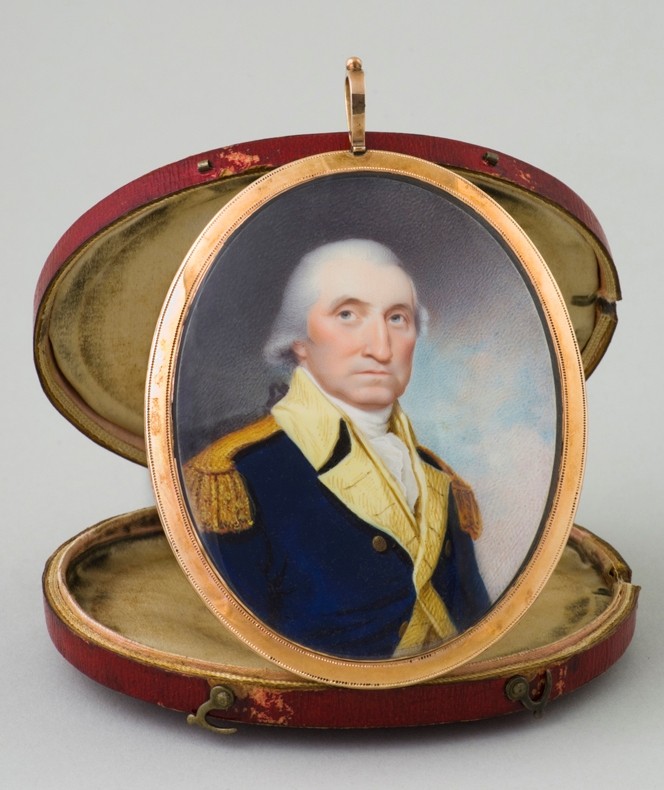Impeachment and George Washington: When it rains, it pours

Is this George Washington? Really? (Painted by Walter Robertson, 1790s.
Back in April, I wrote two short pieces on history topics of interest to me — impeachment trials and George Washington. So, naturally enough, they both launched on the web this weekend, within 24 hours of each other. So I might as well promote them together, right? You can check out:
- My take that historians need to back off from analyzing Washington’s “110 Rules of Civility,” which were initially composed by French Jesuits in the late sixteenth century. After copying them into his schoolbook as an apparent penmanship exercise, Washington NEVER mentioned them again. There’s no evidence that he ever thought of them again. On History News Network —
- My explanation of what presidential impeachment trial have been, and are likely to be: that is, not really a trial, but more of political kabuki theater. They tried to put President Andrew Johnson to a real trial, and it didn’t work very well. They didn’t much try when it came to Bill Clinton, which is likely to be the pattern in the future. On Law 360 —
BONUS ROUND: check out the life portraits of George Washington that Mount Vernon has posted on its website, especially the last six or so, which were all painted in his final years. Is that the same guy in every picture?
Gotta get back to work. . . .
Hi David. I am reading your book on the Summer of 1787 (my first Kindle book!). Loving it so far, but I have a question for you. Why are the North Carolinians never named? Everytime a North Carolinian is mention it simply says “a North Carolinian said/wrote”.
Just curious. Thank you!
Excellent question, and you are the second person who has asked this question in the 11 years since the book came out. (I suspect both questioners have a connection to North Carolina. . .) The answer is that I have found some readers get discouraged by lots of names in a book, feeling like they should be remembering all these names but being unable to remember them, which is frustrating. If a delegate was (i) not going to be mentioned very much, and (ii) not much of a historical figure in his own right, I tended not to name him in the text. The North Carolina delegates fell into this category. The closest call involved Hugh Williamson, who was really from Pennsylvania but was chosen a delegate from North Carolina and did serve with NC troops during the war. Williamson was pretty well engaged in the debates and made some useful remarks, but did not make the cut — an admittedly arbitrary process. I did mention him by name, however, in a piece I published on History News Network this morning! https://historynewsnetwork.org/article/169656.